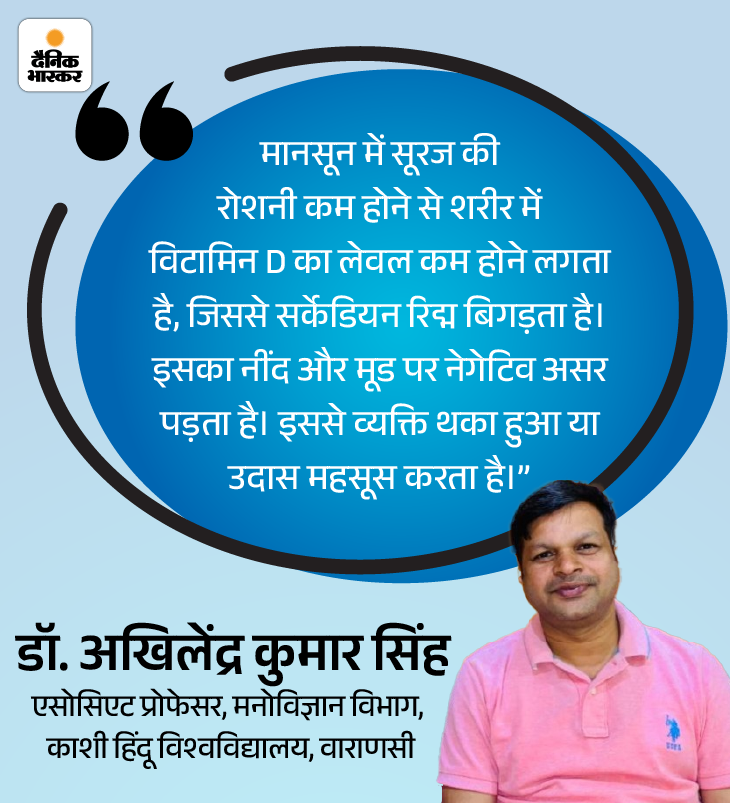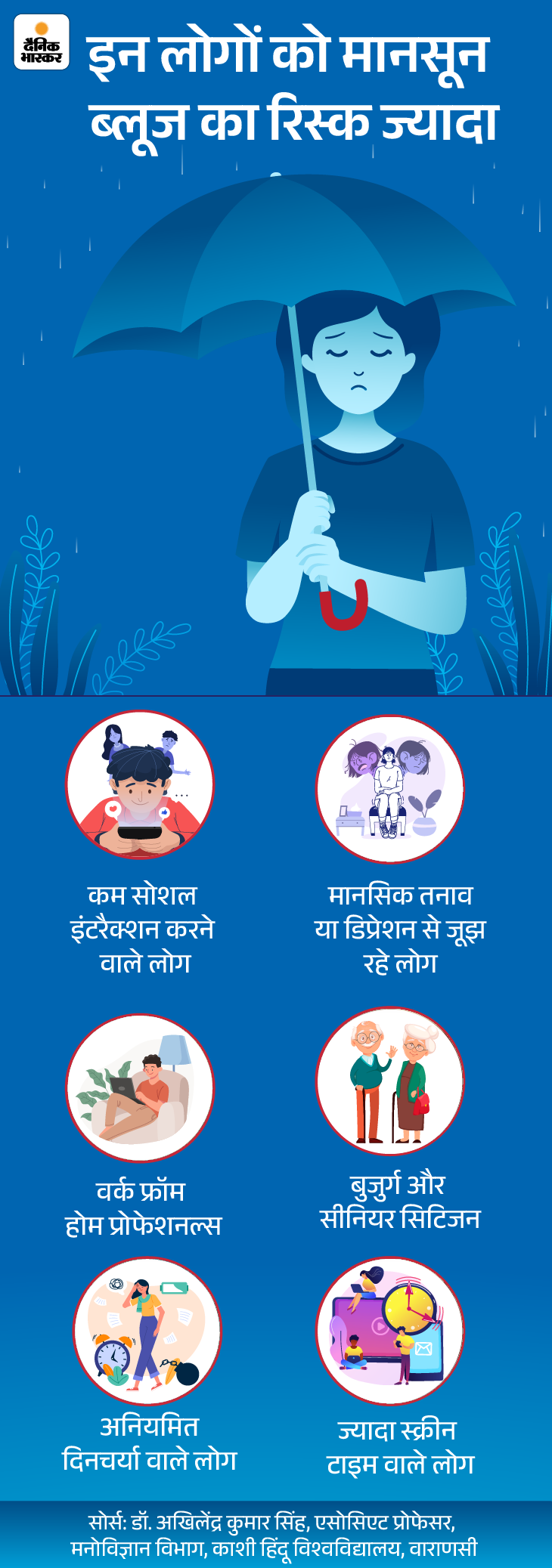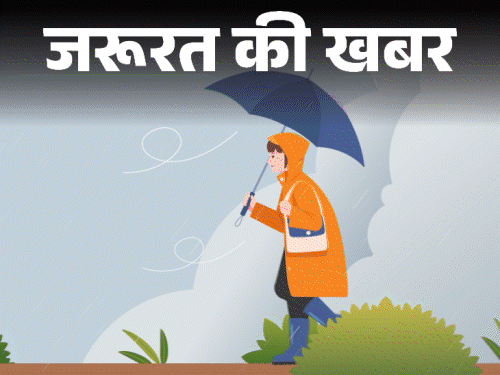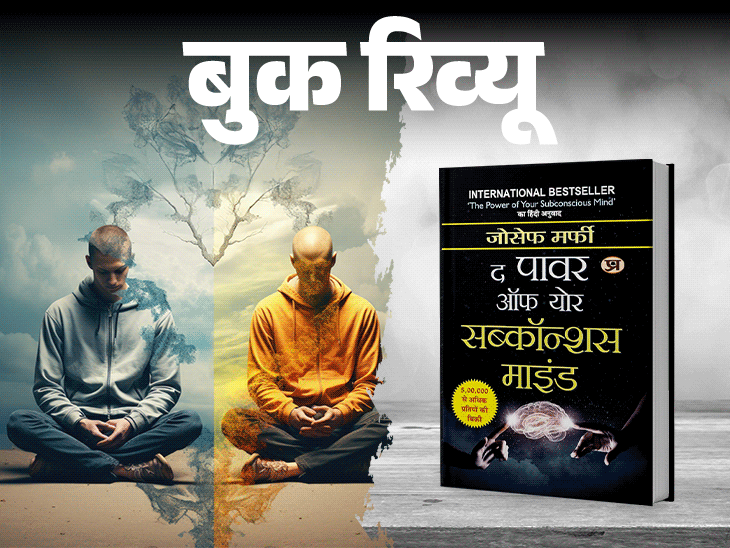22 minutes ago
- Copy link

july With the beginning of the country, it is raining in many parts of the country. The Meteorological Department has also issued alert for heavy rainfall in many states. In such a situation, when many consecutive days have to remain closed at home, the outside world starts to look slow and dull, then its effect starts to appear not only on the weather, but also on our mood.
In this long and closed atmosphere of rain, many people begin to experience feelings like fatigue, irritability, unnecessary sadness or loneliness. This mental state is called ‘monsoon blues’.
It is a psychological response associated with weather, which affects the feelings and behavior of thousands of people every year. Monsoon blues may also be an initial warning of depression at times. Especially for those who are already struggling with stress, loneliness or social distance.
So let’s ‘News of need’ I understand today what is the science behind the monsoon blues? Will also know that-
- How to protect yourself in this season?
Expert: Dr. Akhilendra Kumar Singh, Associate Professor, Department of Psychology, Kashi Hindu University, Varanasi
Question- What is the science behind monsoon blues?
answer- According to a report published in the healthline, researchers found that continuous rains, clouds and low sunny weather could have a negative effect on human mood and behavior.
Actually, due to lack of sunlight for several days, the level of serotonin (Happy hormone) starts falling in the body. This hormone helps to keep our mood stable and positive. People feel depressed, tired or irritable due to a decline in its level.
At the same time, due to lack of sunlight, the level of vitamin D in the body also starts decreasing, which causes problems like fatigue, low energy and immunity. Constant bad weather can affect not only on the mood, but the person’s ability to think, social engagement and even decision making ability.

Question- What is the difference between monsoon blues and depression?
answer- Monsoon blues is a temporary mental state, especially in rain and low sunny weather. In this, a person may feel tired, sadness, irritability or loneliness for a short time. These symptoms usually recover in a few days. Depression is a clinical mental illness, which lasts for a long time.
Question- Which people are more prone to monsoon blues?
answer- Everyone can have monsoon blues, but some people are more sensitive to it. Understand it from the graphic below-

Question-What changes can be made in the daily routine to avoid monsoon blues?
answer- Associate Professor Dr. Akhilendra Kumar Singh says that to avoid monsoon blues, it is necessary that you start your day in a positive and active way. In this season, the body needs more light, movement and social connections. Light exercise, nutritious food and interaction with loved ones help to maintain mood stable and better. Also avoid digital overload and spend time in activities that keep yourself calm and balanced. Below are some points in the graphic, you can follow them.

Question- How does monsoon blues look in children and teenagers?
answer- Symptoms of monsoon blues in children and teenagers (teenagers) may be slightly different from adults. It can be seen in changes such as fatigue, excessive sleeping, sudden irritability or sadness, less interest in studies or favorite activities. This change in teenagers can also be revealed as more screen time, distance from social media or more sensitivity.
Parents should pay attention to small changes in their behavior, sleep, food and dialogue methods. In time, children get emotional stability due to love, talk and understanding and they are able to overcome this season more easily.
Question- What is the role of a diet to prevent monsoon blues?
answer- The right catering helps to maintain mood-boosting hormone levels in the body. It is beneficial to eat nutrients like omega-3 fatty acids, vitamin D and triptophyn in this season. They keep the mind calm and make the mood better. For this, you can include things like peanuts, eggs, yogurt, banana in your diet. Also, eating fresh fruits and herbal tea is also beneficial. Keep in mind that processed, sugar and very oily things should be avoided as they can increase lethargy and low energy.
Question- What to do if this situation remains for more than two weeks?
answer- If there have been feelings like sadness, fatigue, emptiness of mind or not taking interest in any work for more than two weeks, do not ignore it. It can be a sign of clinical depression, not just monsoon blues. Especially when a big changes appear to be seen in sleep, hunger, behavior or way of thinking.
In such a situation it is necessary to contact a psychiatrist or counselor immediately. Taking help in time is not only the right decision, but is the most important step for mental and emotional health.
,
Read these news too …
1. 11 common diseases occurring in monsoon: Learn from a doctor, their symptoms and 10 ways to avoid, take special care of cleanliness

The rainy season definitely gives relief from the scorching heat. But it also brings the risk of many infectious diseases. Bacteria and viruses thrive rapidly due to moisture and filling water from place to place. This increases the risk of spreading infection. Read full news …
2. Increasing allergy cases during the rainy season: these people know more risk, symptoms from doctor and 10 measures for prevention

The rainy season brings many types of allergies with it. For those who are already suffering from any allergy, the problem increases even more. Fungus and bacteria thrive due to increased moisture and heat in this season, which can trigger allergies. Read full news …



